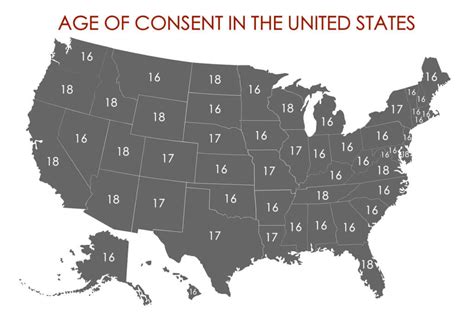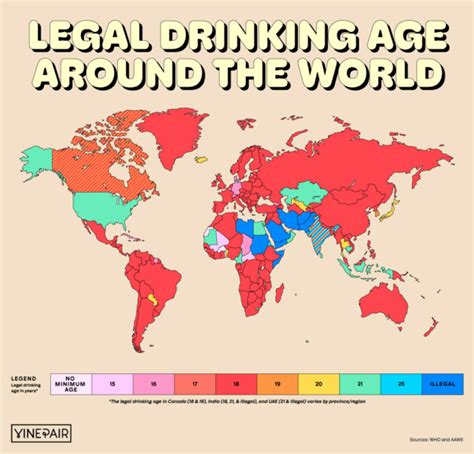Legal Age For Drinking In Texas

The legal age for drinking in Texas is a topic that has been a subject of debate and interest for many. With a diverse cultural landscape and a thriving nightlife scene, understanding the legal framework surrounding alcohol consumption is crucial for residents and visitors alike. This article aims to provide an in-depth analysis of the legal age requirements for drinking in Texas, exploring the nuances of the law, its implications, and the broader context of alcohol regulation in the state.
Understanding the Legal Age for Drinking in Texas

In Texas, the legal age for drinking alcoholic beverages is clearly defined by state law. Individuals must be 21 years of age or older to legally purchase, possess, or consume alcohol. This age restriction applies to all forms of alcoholic beverages, including beer, wine, and distilled spirits.
The Texas Alcoholic Beverage Code (TABC) is the primary legislation governing the sale and consumption of alcohol in the state. The TABC outlines the legal age limit as part of its comprehensive regulations aimed at promoting responsible alcohol consumption and preventing underage drinking.
While the legal age of 21 is a federal mandate across the United States, each state has the authority to enforce and interpret these laws within its jurisdiction. In Texas, the TABC works in conjunction with local law enforcement agencies to ensure compliance with the legal drinking age.
Enforcement and Penalties
Texas takes the enforcement of its alcohol laws seriously. Violating the legal drinking age can result in various penalties, including fines and even criminal charges. The severity of the penalty often depends on the specific circumstances of the violation.
For instance, providing alcohol to a minor is considered a Class A misdemeanor, which can lead to a fine of up to $4,000 and potential jail time. Minors caught in possession of alcohol may face fines and a mandatory alcohol awareness course. Additionally, establishments that serve alcohol to minors can face significant penalties, including license suspension or revocation.
| Violation | Penalty |
|---|---|
| Minor in Possession | Fines, Alcohol Awareness Course |
| Selling to a Minor | Class A Misdemeanor, Fines, Jail Time |
| Serving Alcohol to a Minor | License Suspension/Revocation, Fines |

Exceptions and Special Circumstances
While the legal age of 21 is the general rule, there are certain exceptions and special circumstances outlined in the TABC. These exceptions are designed to accommodate specific scenarios and cultural traditions while maintaining overall public safety.
- Parental Consent: Minors aged 18-20 may be permitted to consume alcohol in the presence of a parent or legal guardian. This exception applies to private residences and certain supervised events.
- Religious Ceremonies: Alcohol consumption for religious purposes is allowed for minors with the consent of their parent or guardian. This exemption typically applies to wine or other alcoholic beverages used in religious rituals.
- Alcohol Education Programs: Some alcohol education programs may involve supervised alcohol consumption as part of their curriculum. These programs are strictly regulated and require approval from the TABC.
It is important to note that these exceptions are strictly controlled and should not be misinterpreted as a general lowering of the legal drinking age. The primary purpose of these exceptions is to respect certain cultural practices and educational initiatives while ensuring the overall safety and well-being of minors.
Impact and Cultural Considerations

The legal drinking age in Texas has a significant impact on various aspects of society, including cultural practices, social dynamics, and public health.
Cultural Events and Traditions
Texas is home to a diverse range of cultural communities, each with its own unique traditions and celebrations. While the legal drinking age of 21 may pose challenges for some cultural events, the state’s exceptions for religious ceremonies and parental consent provide a balance between respecting cultural practices and maintaining public safety.
For instance, during traditional Hispanic celebrations like Quinceañeras or Mexican Independence Day, alcohol is often an integral part of the festivities. The parental consent exception allows for the supervised consumption of alcohol by minors in these contexts, fostering a sense of cultural continuity and family involvement.
Social Dynamics and Youth Culture
The legal drinking age of 21 can influence social dynamics among young adults. While some may view it as a restriction, others see it as an opportunity for responsible behavior and maturity. The age limit encourages young adults to engage in alcohol consumption at a time when their brains are more fully developed and they are better equipped to handle its effects.
Furthermore, the legal drinking age creates a cultural divide between those who are legally able to purchase and consume alcohol and those who are not. This divide can shape social interactions, with younger individuals often seeking alternative social venues or activities to those involving alcohol.
Public Health and Safety
The legal drinking age of 21 is primarily enforced to protect public health and safety. Research has shown that delaying the onset of alcohol consumption can have significant benefits for individual development and societal well-being.
By setting a higher legal drinking age, Texas aims to reduce the risks associated with underage drinking, including impaired judgment, increased accident rates, and long-term health consequences. The state's strict enforcement of the law is an essential component of its strategy to promote a healthier and safer society.
Conclusion
The legal age for drinking in Texas, set at 21 years, is a carefully considered regulation aimed at balancing cultural practices, social dynamics, and public health. While exceptions exist to accommodate specific scenarios, the overall goal is to ensure responsible alcohol consumption and protect the well-being of both individuals and society as a whole.
Understanding and respecting the legal drinking age is crucial for all residents and visitors to Texas. By adhering to these laws, individuals can contribute to a culture of responsible drinking and ensure a safe and enjoyable experience for everyone.
What is the legal drinking age in Texas for wine and beer consumption at home?
+The legal drinking age in Texas for wine and beer consumption at home is 21 years old. While there are exceptions for parental consent and religious ceremonies, these apply only to supervised settings. Unsupervised consumption of alcohol by minors, even at home, is illegal.
Can minors attend alcohol-serving venues in Texas?
+Yes, minors can attend alcohol-serving venues in Texas, but they must be accompanied by a parent or legal guardian. Minors are not allowed to consume alcohol in these settings, even with parental consent.
Are there any legal consequences for providing alcohol to a minor in Texas?
+Yes, providing alcohol to a minor in Texas is a Class A misdemeanor, punishable by a fine of up to $4,000 and potential jail time. It is a serious offense, and individuals should be aware of the legal risks associated with providing alcohol to those under 21.



